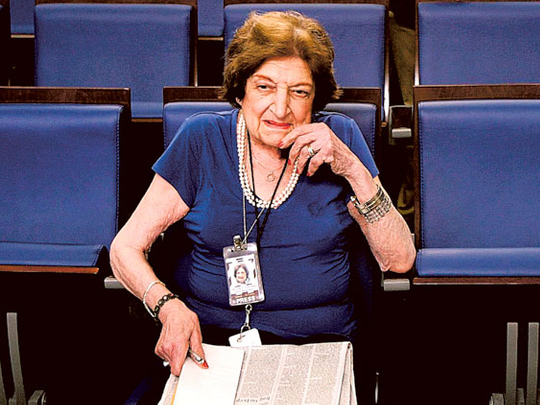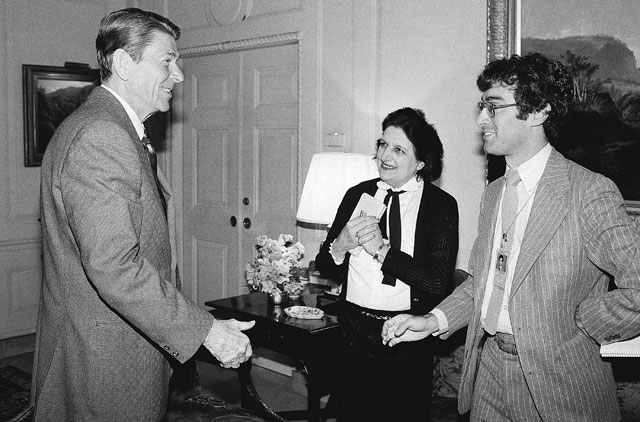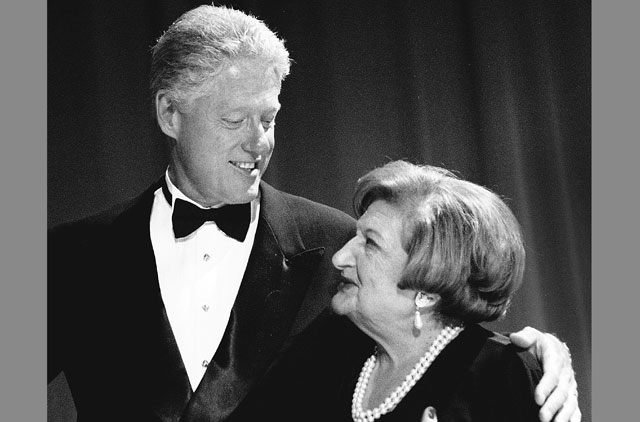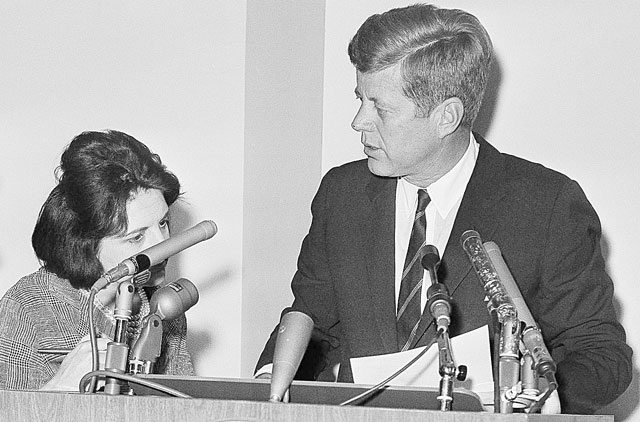
Beirut: The preeminent American journalist Helen Thomas, who died on Saturday at the age of 92, was a hero to millions who admired her determination to break both prevalent misogyny and persistent anti-Arab views among Washington elites.
As the first female president as well as the first woman to be named White House bureau chief of a major wire service, United Press International, Thomas stood out due to her unparalleled accomplishments, sheer wit, and audacity in front of presidents who pretended to be kings.
At a time when women reporters covered soft news, Thomas transformed her challenges into opportunities, starting with the presidential campaign of John F. Kennedy.
When JFK won, the glamorous Jacqueline Bouvier Kennedy was the reporter’s manna from heaven, though it was not long after that Thomas’ indefatigable pursuit of hard news catapulted her to the forefront.
Her JFK interview was the first of many with presidents, as she became one of the most-recognised reporters in America.
A short, dark-eyed woman with a croaky voice, she rose from her front-row seat at presidential news conferences to ask the first question and, for nearly 30 years, to close the sessions with a simple: “Thank you, Mr President.”
That tradition ended with the George W. Bush administration when a banishment to the back of the room was instituted, ironically at the hands of fellow White House reporters whom she frequently criticised for failing to ask hard questions, and that lasted three years.
Bush was peeved at her January 2003 off-the-cuff remarks to an autograph-seeker at a banquet: “I’m covering the worst president in American history,” which was made public.
Though she apologised in a personal letter, Bush did not call on her during a press conference until March 21, 2006, when Thomas picked where she had left off:
“I’d like to ask you, Mr President. Your decision to invade Iraq has caused the deaths of thousands of Americans and Iraqis, wounds of Americans and Iraqis for a lifetime. Every reason given, publicly at least, has turned out not to be true. My question is: Why did you really want to go to war? From the moment you stepped into the White House, from your Cabinet officers, intelligence people and so forth—what was your real reason? You have said it wasn’t oil — quest for oil — it hasn’t been Israel or anything else. What was it?”
Thomas was born in Kentucky, the seventh of ten children to George and Mary Antonious from Tripoli, Lebanon.
The new family surname was anglicised when George entered the US at Ellis Island and though the immigrant family assimilated, Helen, who was raised mainly in Detroit, Michigan, never lost her integrity as she performed her duties.
The outspoken reporter retired in June 2010, following negative reactions to her comments about Israel, Jews, and Palestine during a brief videotaped interview with Rabbi David Nesenoff of RabbiLive.com.
When she was asked for comments on Israel, she replied: “Tell them to get the hell out of Palestine,” which was perceived as an anti-Semitic diatribe. She regretted the universally-condemned comments.
Only one person of substance offered an unruffled opinion on the fate that befell her.
Ralph Nader, the Connecticut born son of Lebanese Greek Orthodox immigrants and five-time candidate for President of the United States who spoke near-native Arabic, noted the “double standard” in American journalism.
He lamented that an off-hand “ill-conceived remark” ended a brilliant career and while “ultra-right wing radio and cable ranters” engaged in “bigotry, stereotypes and falsehoods directed wholesale against Muslims, including a blatant anti-Semitism against Arabs,” passed for enlightened reportage.
For six decades, Thomas added value to her position, a feat recognised by President Ronald Reagan in 1984.
As Thomas received the National Press Club’s Fourth Estate Award, Reagan affirmed: “You are not only a fine and respected professional, you have also become an important part of the American Presidency.”















